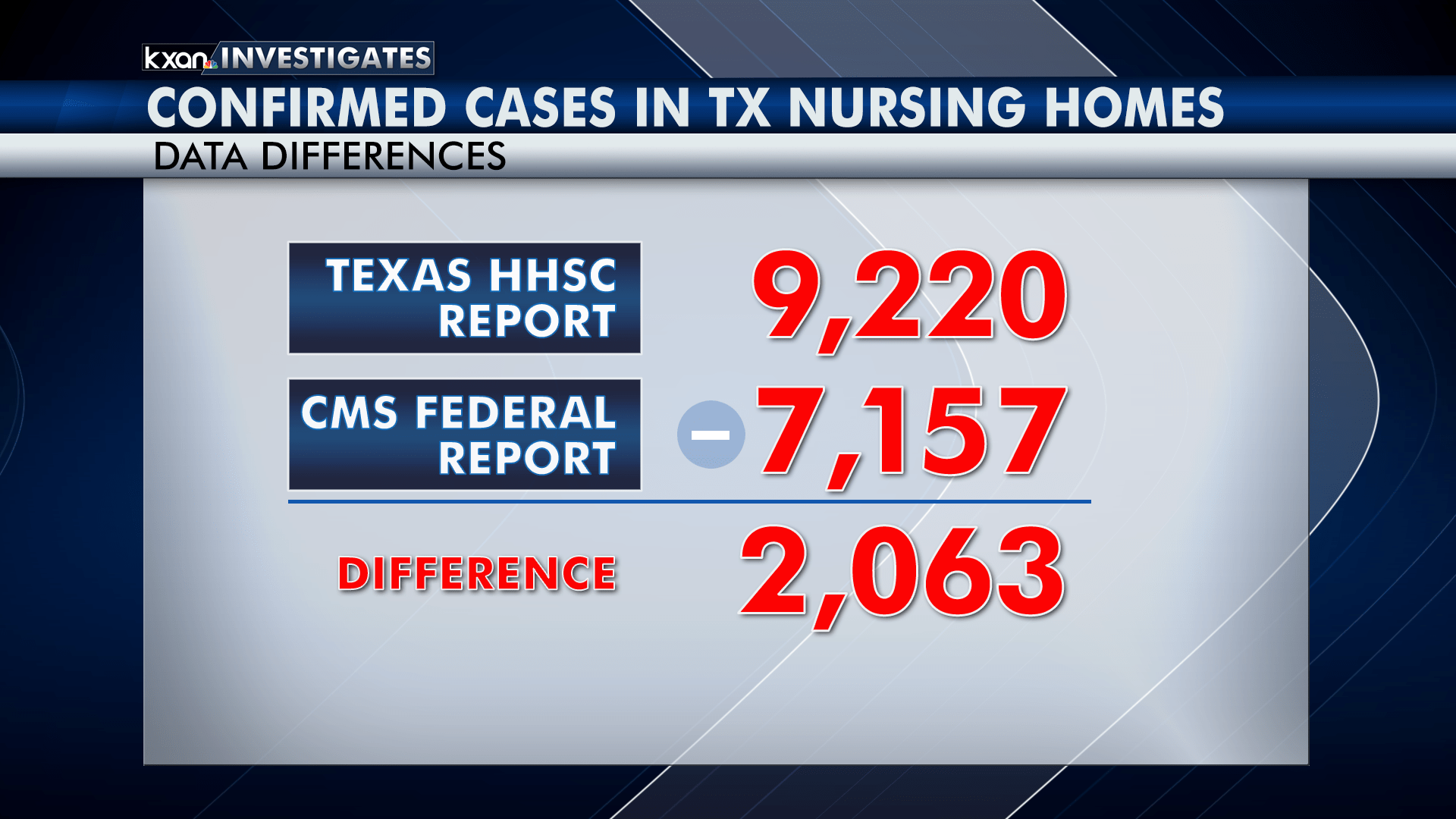AUSTIN (KXAN) — Christie Schultz used to be able to visit her mom through the window of her Austin nursing home, but she said her mom was recently moved. Now, she hasn’t seen her face in days.
“You’re literally kind of banging on the doors, trying to get information,” Schultz said.

She said one staff member at Windsor Nursing and Rehabilitation Center of Duval told her father there were more than 20 confirmed cases of COVID-19. Meanwhile, she said the state’s Office of the Long Term Care Ombudsman told her there were as many as 55 positive cases at one point.
“You’re not even sure at that point if it’s accurate anymore. Maybe it’s outdated?” she said.
State data, released this week for the first time by the Texas Health and Human Services Commission, shows zero confirmed cases among residents or staff at Windsor as of July 14.
Federal data, reported by the Centers for Medicare and Medicaid, shows one resident and seven staff testing positive as of July 12.
KXAN Investigators found hundreds of discrepancies between state data reported by the Texas Health and Human Services Commission and federal data reported by the Centers for Medicare and Medicaid.
For instance, state data has 2,063 more nursing home residents testing positive than federal data from the same week. The state also reported 219 more deaths in these facilities than the federal report.


For weeks, facilities have been required to inform residents and families about confirmed cases inside their walls. Facilities also have to report the data separately to local, state and federal health officials.
A spokesperson for HHSC said, “Because facilities self-report this data to us, data entry errors can occur. So, there are two weeks to allow time for our staff to review, research any issues and correct any clerical or reporting errors.”
They said this review process explains the lag time in public reporting.
When officials with the CMS launched the national reporting system, they acknowledged there may be “honest errors” in the data, too. Plus, the agency could not require facilities to retroactively report cases, meaning many cases from early on in the pandemic could have gone unreported.
George Linial, President & CEO of senior-living advocacy group LeadingAge Texas, said this extensive reporting process was bound to result in errors.
“Facilities literally have to report to umpteen different entities,” he said. “Most of the family members of the residents have been notified, so the fact that these have been made public… I don’t know if it’s actually done anything.”
Linial said the publication of these lists only vilifies nursing facilities.
“Nursing facilities somehow get blamed for having cases in their buildings, and we know there are some five-star facilities, that have every infection control process in place, have had cases,” he said.
He attributes the spread to asymptomatic staff that spread the virus unknowingly, emphasizing the need for testing.
“I think a better measure should be, if a nursing home has an outbreak, how they deal with them,” he said. “And how transparent they are.”
Schultz said she feels like the transparency piece is missing.
“For my family, unfortunately, we are just in a waiting game,” she said. “This is really a white hot spotlight on all the changes that need to happen.”
A spokesperson for Regency Integrated Health Services, which operates Windsor Nursing and Rehabilitation Center of Duval, said, “The data you are referring to was updated July 14. Since then, we have confirmed additional cases at the Windsor Nursing and Rehabilitation Center of Duval facility.”
They went on to say, “Families have been notified about the new cases and we will continue to provide updates during our regularly scheduled weekly calls that we host to ensure families have the latest information about their loved ones. We know that these are challenging times for everyone, and we appreciate the support and understanding we receive from our families and community.”
Schultz said her family was aware of a couple online ‘webinars,’ but no weekly calls.
She said, “They are getting paid, and they should be held accountable for the level of care and communication and responsibility they have — to the residents and the families.”


0 Comments